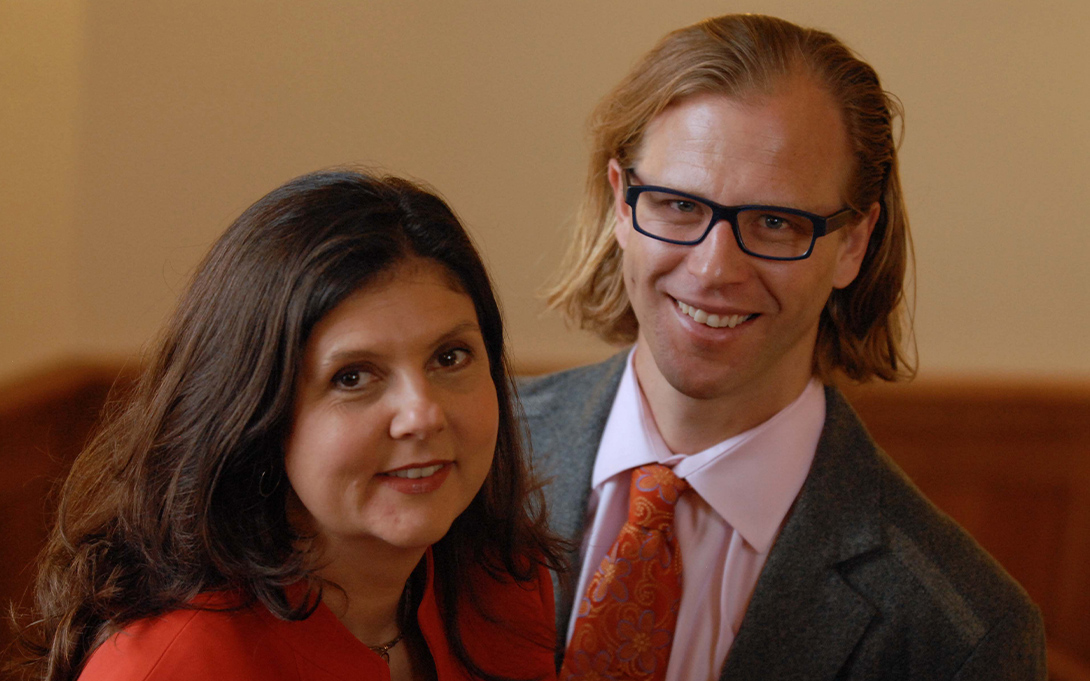
A historic $2 trillion relief package has just been approved by Congress in response to the COVID-19 pandemic, and subsequent economic crisis. Professors Betsey Stevenson and Justin Wolfers have weighed in on the relief package and the economic situation more generally in several media outlets this week, including Axios and Radio Times.
Wolfers highlighted that it’s hard to know exactly what’s happening in the economy right now because everything is changing so quickly. Commenting on the coronavirus relief package, in The New York Times, Wolfers said, “The response looks to be proportionate to the extent of the problem,” but, “we have no idea what the extent of the problem is.”
In The Atlantic on March 26, Wolfers commented that “The big question is, ‘When will we know more?,’ and the answer is: It depends. On the financial side, we’ll see immediately if there’s a cascading catastrophe, because you’ll have a breakdown in credit markets. On the business side, we’ll see hints, like bankruptcy numbers, throughout the next few months. But on the consumer side, we might not really know where we are until the virus is beaten.”
Stevenson and Wolfers both commented on President Trump’s recent suggestion that the U.S. should end shutdowns by Easter in order to restart the economy. When The Associated Press raised questions about an economically acceptable death toll, Stevenson said, “People hate that question. By laying out the math in such a crude way, people cringe when they see it.”
“We can’t just go back to normal tomorrow,” said Stevenson in the Boston Globe. “There is no such thing as ‘the economy.’ We are a group of people who get together and trade in order to improve our own well-being and welfare," she said.
Recommendations to reopen businesses and lifting shutdowns are not official economic recommendations, Wolfers noted in a tweet re-published in Roll Call. "As you read various arguments floating around that perhaps we should ease public health restrictions to help the economy, I want you to notice that IN NO CASE ARE THESE ARGUMENTS BEING MADE BY ACTUAL ECONOMISTS.” [emphasis in the original tweet]
Betsey Stevenson is a professor of public policy and economics at the University of Michigan. She is also a faculty research associate at the National Bureau of Economic Research, a visiting associate professor of economics at the University of Sydney, a research fellow of the Centre for Economic Policy Research, a fellow of the Ifo Institute for Economic Research in Munich, and serves on the executive committee of the American Economic Association. She served as a member of the Council of Economic Advisers from 2013 to 2015 where she advised President Obama on social policy, labor market, and trade issues. She served as the chief economist of the U.S. Department of Labor from 2010 to 2011, advising the Secretary of Labor on labor policy and participating as the secretary's deputy to the White House economic team.
Justin Wolfers is a professor of public policy and economics. He also serves as a member of the Congressional Budget Office Panel of Economic Advisers. Wolfers' research interests include labor economics, macroeconomics, political economy, social policy, law and economics, and behavioral economics. Previously, Wolfers was an associate professor of business and public policy at the University of Pennsylvania and a visiting professor at Princeton University. He is a research associate with the National Bureau for Economic Research, a senior fellow of the Brookings Institution, a senior fellow of the Peterson Institute for International Economics, a research affiliate with the Centre for Economic Policy Research in London, and an international research fellow at the Kiel Institute for the World Economy in Germany.
